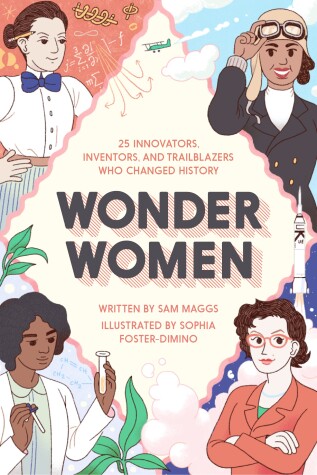Reviewed by Briana @ Pages Unbound on
Initial Thoughts: The content is generally really fascinating and enjoyable, but I personally found the writing style irritating. I understand Maggs is going for a relatable, Tumblr-style prose (You know, by saying things like "What even?" or "She scienced her way to the top" or "That's how they do" or whatever people say when they're trying to be cute on the Internet these days.) The tone will probably will a selling point for much of the intended audience, so I'll write it off as a personal pet peeve. There were points, however, where the cutesy language seemed to diminish the accomplishments of some of the women featured by blithely referring to "smartperson talk" or "doing the science." And while I did enjoy most of the featured women, a few have borderline status as heroes or role models, in my opinion. For instance, Maggs features one women who was a spy and forger for personal gain (and was so bad at it she kept getting caught, so we can't even admire her skill). She seemed like a bad person to me and not worth holding up for glory, but Maggs writes her greedy and unethical behavior off as "Well, women were oppressed so whatever." Finally, the book definitely has a feminist agenda (which, again, is a selling point, and I have no issue with it). However, it gets a bit awkward in the interviews that end each section of the book. Maggs consistently asks women currently in STEM what oppression they have faced as if it's a given, and it's a bit awkward (though perhaps heartening) that many of the women's responses are in the vein of "Not much, actually...."
Full review to come.
Reading updates
- Started reading
- 1 September, 2016: Finished reading
- 1 September, 2016: Reviewed
